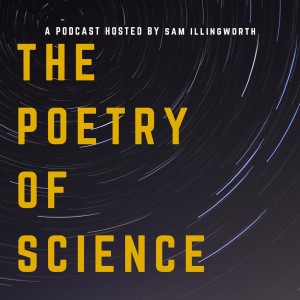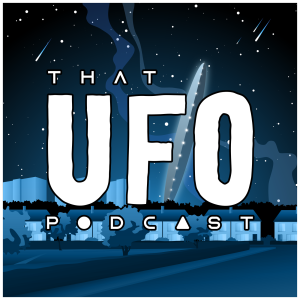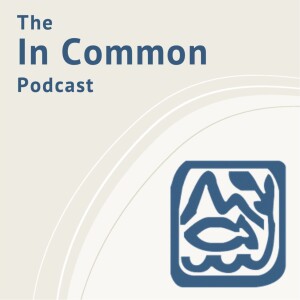
In this episode, Hita speaks with Dr. Sarah Bezan who is a scholar of environmental humanities currently employed as a Lecturer in Literature and the Environment at the Radical Humanities Laboratory at University College Cork in Ireland. Previously she was a post-doctoral Research Associate at the Leverhulme Centre for Anthropocene Biodiversity in The University of York in the United Kingdom. In this conversation, they chat about how participating in a paleo dig and uncovering a Mosasaur skeleton sparked in her a curiosity that led to her current engagement with making sense of extinction. They speak about artistic representations of extinct animals such as Harri Kallio’s representations of the dodo bird on an island in Mauritius or Mark Dion’s Ichthyosaur installation, and how they manipulate imaginaries surrounding the temporal and spatial boundaries of the extinct species. In describing these imaginaries, they discuss the idea of animal atopias, a term she coined to refer to those placeless places surrounding extinction, where the animal exists not on a spatially defined space but a constructed one, evoking a nostalgia for what once was. They discuss about Sarah’s experiences on the Galapagos Islands where she studied the taxidermic specimen of Lonesome George, the last representative of the Pinta island tortoises and her observation that the extinct body is essentially an exploded one raising questions about what it means to be the last representative of a species and the responsibility that death places upon such individuals. They reflect upon how practices of taxidermy and museum curatorship are essentially performative, designed to evoke a specific emotion or knowledge, rendering them hyper visible, while subsuming others. They discuss de-extinction projects such as the Jurassic World like attempts at reviving the woolly mammoth or even theoretical ideas of re-creating Neanderthals as proposed by George Church are all ways in which we attempt to revive prehistoric fantasies of the human – a fantasy nevertheless that is separate from the idea of the modern human. The conversation concludes with some reflections on interdisciplinary research and the responsibility that early career scholars are placed with when attempting to straddle multiple schools of thought.
Sarah’s personal website: https://www.sarahbezan.com/
Some of the references we cite during the conversation are listed below:
- “Dodo Birds and the Anthropogenic Wonderlands of Harri Kallio.” Parallax, 25, no. 4, 2019: 427-445. (*To be reprinted as a foreword to Harri Kallio, The Dodo and Mauritius Island: Imaginary Encounters, 2nd Edition. Stockport, UK: Dewi Lewis Publishing, 2023).
- “The Endling Taxidermy of Lonesome George: Iconographies of Extinction at the End of the Line.” Configurations: A Journal of Literature, Science, and Technology, vol. 27, no. 2, 2019, pp. 211-238. Co-Edited by Sarah Bezan and Susan McHugh.
- “A Darwinism of the Muck and Mire: Decomposing Eco- and Zoopoetics in Stephen Collis and Jordan Scott’s decomp.” In Texts, Animals, Environments: Zoopoetics and Ecopoetics. Ed. Roland Borgards, Catrin Gersdof, Frederike Middelhoff, and Sebastian Schönbeck. Freiburg: Rombach Verlag “Cultural Animal Studies Series,” 2019, 241-253.
- Animal Remains. Co-edited by Sarah Bezan and Robert McKay. Routledge Perspectives on the Non-Human in Literature and Culture Series. London: Routledge, 2022.
- “Taxidermic Forms and Fictions.” A special issue of Configurations: A Journal of Literature, Science, and Technology, 27, no. 2, 2019, pp. 131-138. Co-Edited by Sarah Bezan and Susan McHugh, Johns Hopkins University Press.
- Heise, Ursula K. Imagining Extinction: The Cultural Meanings of Endangered Species, Chicago: University of Chicago Press, 2016.
- Jørgensen, Dolly. “Endling, the Power of the Last in an Extinction-Prone World.” Environmental Philosophy 14, no. 1 (2017): 119–38.
More Episodes
Insight #6: Academic working culture
 2020-01-06
2020-01-06
 240
240
023: Policy engaged research, collective action, and the ecology of games with Mark Lubell
 2019-12-07
2019-12-07
 447
447
Insight #5: The challenge of frameworks
 2019-12-05
2019-12-05
 280
280
022: Sustainable food systems with Liz Carlisle
 2019-11-25
2019-11-25
 380
380
Insight #4: Harini Nagendra on structural biases
 2019-11-21
2019-11-21
 251
251
021: Linking Stoicism and sustainability with Kai Whiting
 2019-11-18
2019-11-18
 282
282
Insight #3: Elena Finkbeiner on reflexivity and games
 2019-11-11
2019-11-11
 201
201
Insight #2: David Abson on ecosystem services
 2019-11-07
2019-11-07
 298
298
020: Academic culture and California's water governance with Courtney Hammond Wagner
 2019-11-04
2019-11-04
 234
234
Insight #1: Larry Crowder on interdisciplinarity
 2019-10-30
2019-10-30
 235
235
019: Stream ecology, applied service, and directing SESYNC with Margaret Palmer
 2019-10-27
2019-10-27
 303
303
018: Multi-disciplinary research on the Galápagos Islands with María José Barragán
 2019-10-21
2019-10-21
 204
204
017: Valuing the community level and changing sustainability narratives with Harini Nagendra
 2019-09-23
2019-09-23
 369
369
016: Resilience and indicators at the World Bank with Nate Engle
 2019-09-16
2019-09-16
 259
259
015: Forest policy and governance with J.T. Erbaugh
 2019-08-26
2019-08-26
 277
277
014: aKIDemic Life, resources empowering parents to navigate life and academia with Kirsty Nash
 2019-08-19
2019-08-19
 180
180
013: Research ethics, how to read articles, time management and environmental governance with Jeremy Pittman
 2019-08-12
2019-08-12
 365
365
012: Ecology, marine conservation and interdisciplinarity with Larry Crowder
 2019-08-08
2019-08-08
 410
410
011: Forest governance, the IFRI program and learning from Lin Ostrom with Krister Andersson
 2019-08-05
2019-08-05
 300
300
010: Moving from academia to Conservation International, and a human-rights based approach to fisheries governance with Elena Finkbeiner
 2019-07-29
2019-07-29
 274
274
Create your
podcast in
minutes
- Full-featured podcast site
- Unlimited storage and bandwidth
- Comprehensive podcast stats
- Distribute to Apple Podcasts, Spotify, and more
- Make money with your podcast
It is Free
You may also like

The Poetry of Science


Behavioral Grooves Podcast


Hidden Brain


Something You Should Know


That UFO Podcast


- Privacy Policy
- Cookie Policy
- Terms of Use
- Consent Preferences
- Copyright © 2015-2024 Podbean.com



 iOS
iOS Android
Android